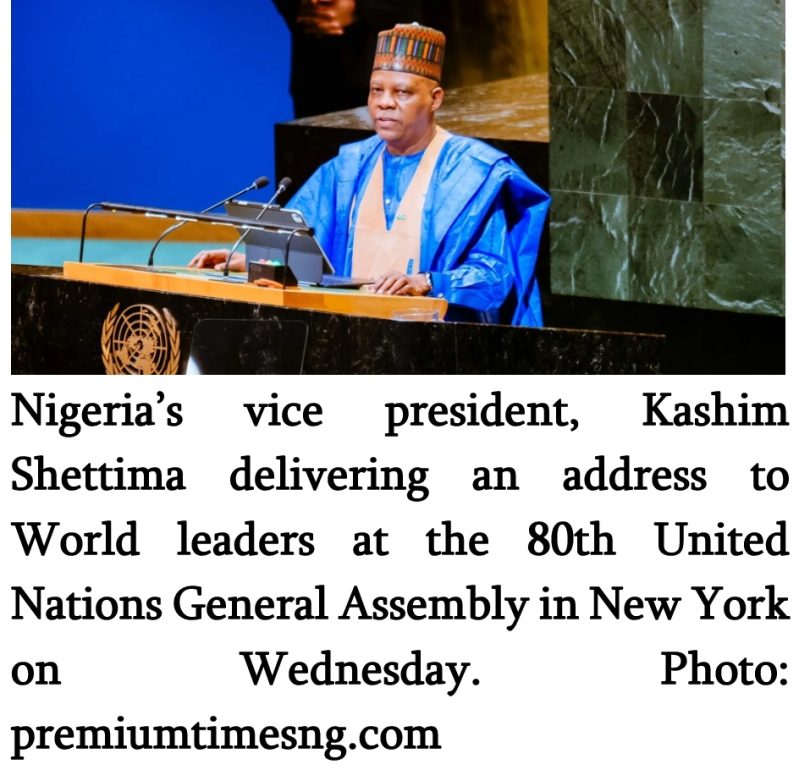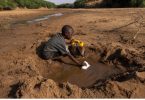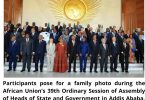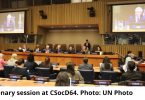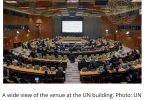On 24 September 2025, Nigeria’s Vice President Kashim Shettima delivered the country’s statement at the 80th session of the United Nations General Assembly (UNGA80) in New York. He spoke on behalf of President Bola Tinubu.
The session was held under the theme “Better Together: 80 years and more for peace, development and human rights.”
The Vice President outlined Nigeria’s key positions on international reform, economic fairness and technology. His speech also touched on Nigeria’s contributions to peace and security and its stance on several global issues.
One of the main points of Nigeria’s address was the need to reform the United Nations so that it better reflects today’s world. Vice President Shettima stated that the UN was established in 1945, a time when Nigeria had no voice in global decision-making. Today, Nigeria is Africa’s most populous country and a significant contributor to UN peacekeeping missions.
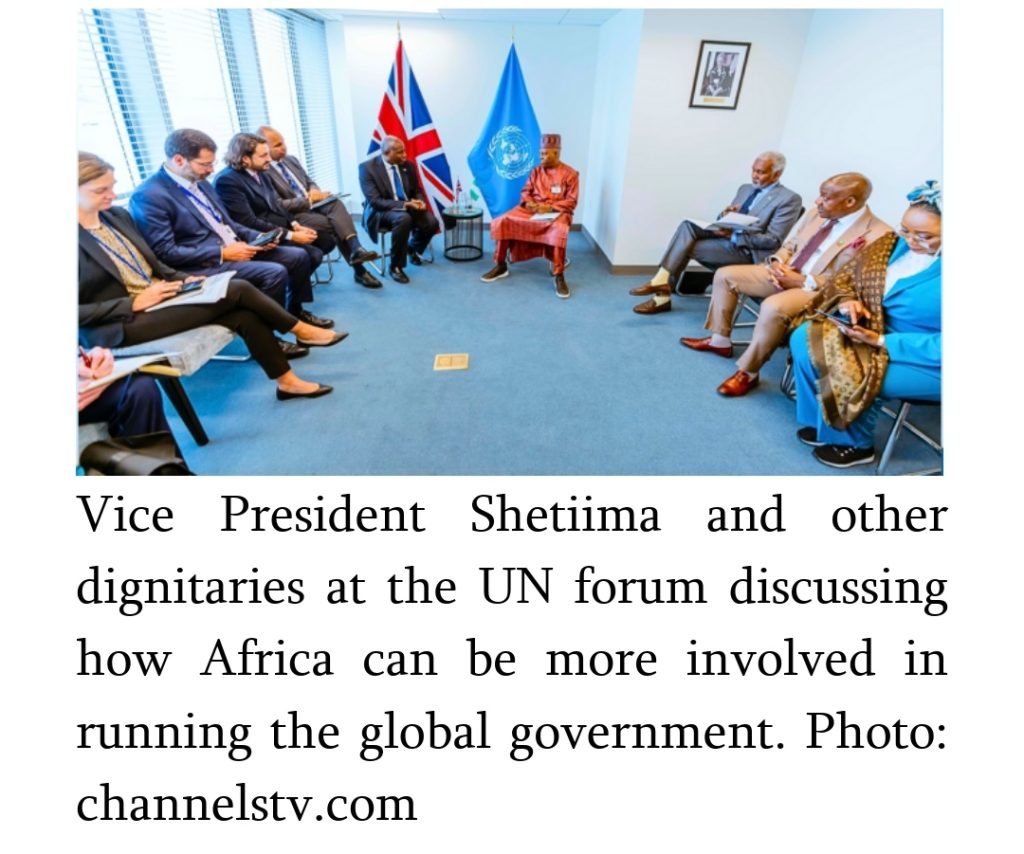
Nigeria called for a permanent seat on the UN Security Council as part of a wider effort to make the Council more representative. The Vice President described this as an issue of fairness and global legitimacy rather than national prestige. He said reforms were needed to ensure that decisions affecting millions of people include the voices of those people.
The second theme of the speech focused on sovereign debt and access to finance. Nigeria argued that many developing countries remain stuck in a cycle of borrowing and exporting raw materials without moving up the value chain.
Vice President Shettima called for the creation of a stronger international framework for debt restructuring. Such a mechanism, he suggested, could function like a court or an agreed set of rules to help countries manage debt more fairly. He said this would free up resources for development and reduce the financial pressure on emerging economies.
Nigeria also raised the issue of fair benefits from strategic minerals. The Vice President stated that countries hosting valuable minerals should receive more investment, local processing, and job creation, rather than primarily exporting raw materials.
He linked this point to Nigeria’s own experience with oil and gas, where communities close to extraction sites often see limited benefits. Ensuring fair returns, he argued, would reduce inequality and help stabilize countries rich in natural resources.
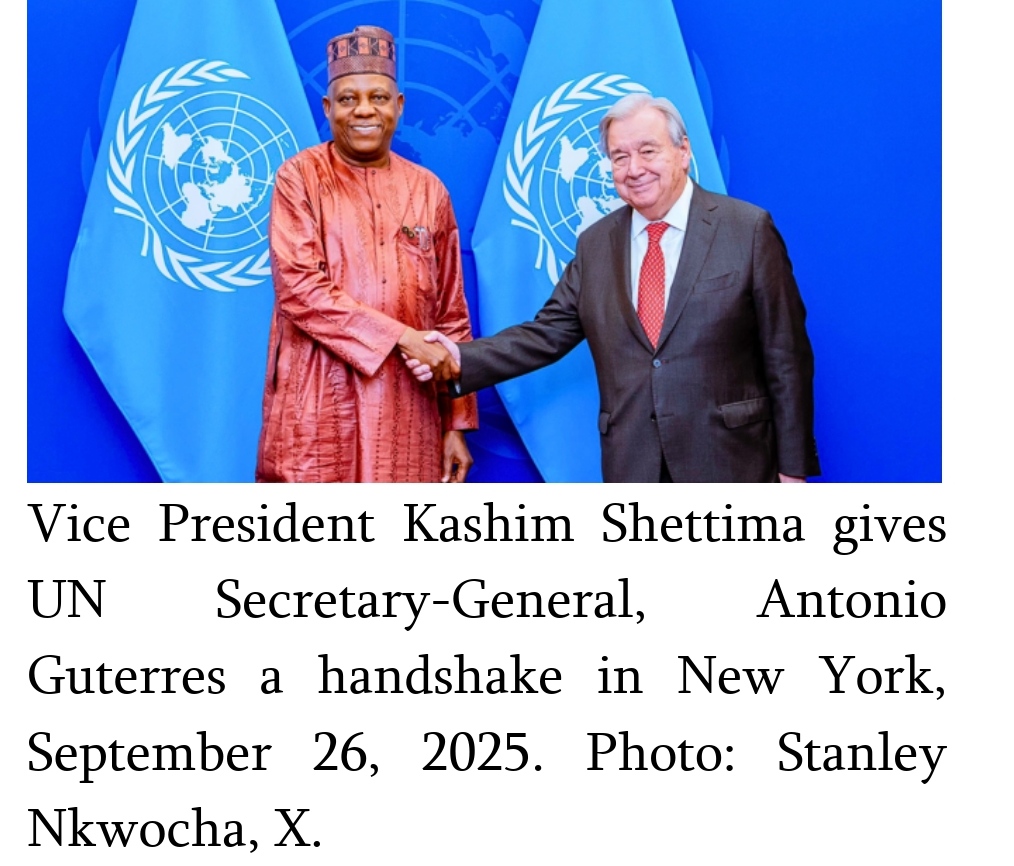
A fourth key theme of the statement was the digital divide. Vice President Shettima called for stronger global cooperation to ensure that new technologies, including artificial intelligence, do not leave parts of the world behind.
He said closing the gap would require efforts from governments, researchers, private companies and communities. Without action, he warned, misinformation and unequal access to technology could deepen existing inequalities. He echoed the UN Secretary-General’s phrase that AI should mean “Africa Included.”
The Vice President also highlighted Nigeria’s history of supporting UN peace operations. Since its independence in 1960, Nigeria has taken part in 51 of the UN’s 60 peacekeeping missions. He said this shows Nigeria’s ongoing commitment to global security and stability.
Shettima noted that Nigeria itself continues to face security challenges such as insurgency and violent extremism. He stated that while military action is necessary, ideas and values must also play a role in addressing the root causes of conflict.
On the Israeli–Palestinian conflict, Nigeria reaffirmed its support for a two-state solution. Vice President Shettima said the Palestinian people are entitled to dignity and self-determination.
He also expressed concern about conflicts in other regions, including Eastern Congo and the Horn of Africa. Nigeria, he said, stands ready to contribute to peace and to speak out against violence wherever it occurs.
While Nigeria’s proposals were clear, the Vice President also acknowledged that they would be difficult to achieve because:
● Security Council reform requires agreement among the current permanent members and regional blocs, a complex and lengthy process.
● Creating a binding international mechanism for debt would involve designing rules, ensuring compliance, and gaining the support of both creditors and debtors.
● Ensuring fair benefits from minerals requires investment in infrastructure, technology transfer, and effective governance.
● Bridging the digital divide requires funding for connectivity, education, and cybersecurity, particularly in rural areas.
Despite these obstacles, Nigeria framed its proposals as necessary steps to restore trust in global institutions. Vice President Shettima stated that the UN must demonstrate that its structures can adapt to meet contemporary challenges.
Written by Dr. Florence Omisakin.


